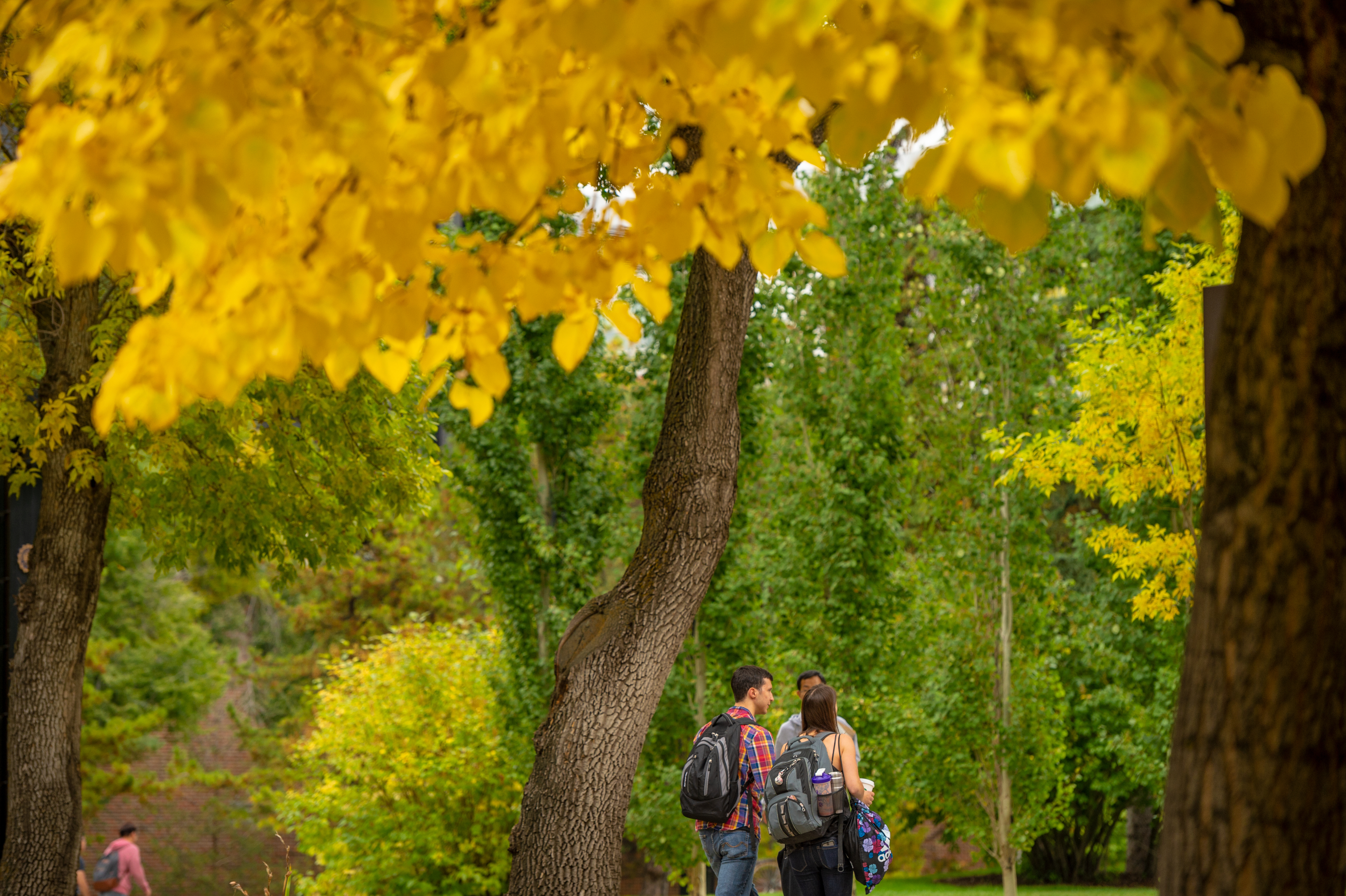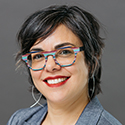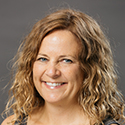
The University of Alberta is known for its beautiful green and gold foliage in the fall. Photo: Richard Siemens
The COVID-19 pandemic has upended our lives in ways we couldn't have anticipated last September. So it's understandable that graduate students looking to begin or continue their studies this fall will have a host of questions about the Fall 2020 term.
At FGSR, we're doing our best to provide answers. But for more detailed and in depth responses to some key questions, we turned to members of our executive team -- the associate deans who are working hard to ensure that your UAlberta grad student experience is top-notch.
I'm new to the U of A. How can I get to know the campus community and my academic cohort if I'm studying remotely?
 As you start your graduate journey remotely, familiarize yourself with various online communities -- that is, virtual communities whose members interact with each other through some form of web-based environment. Beginning with orientation, be sure to check out the FGSR orientation video and watch for virtual events and activities for new students hosted by the GSA.
As you start your graduate journey remotely, familiarize yourself with various online communities -- that is, virtual communities whose members interact with each other through some form of web-based environment. Beginning with orientation, be sure to check out the FGSR orientation video and watch for virtual events and activities for new students hosted by the GSA.
Your instructors may use various virtual meeting platforms such as Zoom and Google Meet to hold classes and virtual office hours, where you can interact and engage with your student community/cohort. eClass, your virtual learning management system, is an important venue to learn about your cohort. You can also benefit from library workshops, which introduce you to librarians who offer various virtual services.
University of Alberta International offers welcome services to all students on campus that are particularly useful for new students, including student clubs and groups and Connect programs. And the resources offered by the Academic Success Centre are useful for those looking to enhance study, research, and writing skills while engaging with other students.
- Dr. Ali Shiri, Associate Dean (Data and Digital Initiatives)
How can I maintain a productive and healthy relationship with my supervisor?
 The key to a good relationship is effective communication. Below are some strategies that will help you achieve your goals by being effective in your communication:
The key to a good relationship is effective communication. Below are some strategies that will help you achieve your goals by being effective in your communication:
• Know and understand your role and that of your supervisor and committee.
• Make sure expectations are clear for both sides and revisit them regularly throughout your graduate career.
• Ask for regular meetings.
• Ask for regular feedback and be open to feedback.
• Ask for guidance when you need it, particularly on Professional Development.
• Be proactive if a conflict arises; deal with it sooner rather than later.
• Do not assume things; this is when relationships take a turn for the worse.
For further information, refer to "How to Ensure a Rewarding Thesis-Based Student-Supervisor Experience at the University of Alberta."
- Dr. Victorial Ruétalo, Associate Dean (Supervisor Training & Mentorship and Student Academic Affairs)
How can I adapt if COVID-19 has interrupted my research?
 Researchers worldwide are feeling the impacts of COVID-19. To help prevent the spread of the virus, international research programs may have been suspended, community-based projects may experience periodic disruptions, or on-campus research may be working around staggered start times or additional personal protective equipment (PPE). To be sure, this can cause no short amount of frustration for students keen to move forward as quickly as possible with their thesis work. Although having your research stalled is always disappointing, there may be ways you can continue to progress.
Researchers worldwide are feeling the impacts of COVID-19. To help prevent the spread of the virus, international research programs may have been suspended, community-based projects may experience periodic disruptions, or on-campus research may be working around staggered start times or additional personal protective equipment (PPE). To be sure, this can cause no short amount of frustration for students keen to move forward as quickly as possible with their thesis work. Although having your research stalled is always disappointing, there may be ways you can continue to progress.
It is important at this time to be creative, flexible and open to other research opportunities. For example, other data sets or research materials might be successfully substituted for what you originally had planned (see this resource). This might be an opportunity to strengthen existing skills or develop new expertise. It is also a good time to read all the journal articles and books that adorn every square inch of your desk or get to all that work you have been putting off.
Be aware of the most current University of Alberta information and news concerning research (i.e. https://www.ualberta.ca/covid-19/index.html).
Health and safety are paramount. Stay safe and stay healthy.
- Dr. Bryan Hogeveen, Vice-Dean
How are my scholarships (or my scholarship applications) impacted by COVID?
 Most scholarship competitions and payments are unchanged for students that are registered full time in their programs. If you are an incoming international student that will be starting their full time graduate program remotely, payments for some scholarships (CCID required for this link) you may have been awarded will be applied to tuition and fees until such time as you are able to set up Canadian banking. Incoming graduate students that are recipients of Tri-Council (SSHRC, CIHR, NSERC) or University of Alberta Doctoral Recruitment Scholarships may be able to defer the start date of the scholarship if necessary, and/or receive payment while registered part-time during the pandemic. Any questions concerning applications, eligibility or payment of Scholarships and awards can be sent to grad.awards@ualberta.ca.
Most scholarship competitions and payments are unchanged for students that are registered full time in their programs. If you are an incoming international student that will be starting their full time graduate program remotely, payments for some scholarships (CCID required for this link) you may have been awarded will be applied to tuition and fees until such time as you are able to set up Canadian banking. Incoming graduate students that are recipients of Tri-Council (SSHRC, CIHR, NSERC) or University of Alberta Doctoral Recruitment Scholarships may be able to defer the start date of the scholarship if necessary, and/or receive payment while registered part-time during the pandemic. Any questions concerning applications, eligibility or payment of Scholarships and awards can be sent to grad.awards@ualberta.ca.
- Dr. Tracy Raivio, Associate Dean (Awards & Scholarships)
If I feel isolated or just need to talk, where can I turn?
 Feelings of isolation are not uncommon in our current virtual environment, and both new and returning students may find it challenging to feel connected. The first thing to recognize is that these feelings are completely understandable, and you are not alone. If you are feeling isolated and looking for opportunities to connect with other students, there may be other graduate students right in your own lab, residence, department or faculty feeling the same way whom you can reach out to. You may also want to explore volunteer opportunities on campus, investigate the numerous student groups, or register for a Campus and Community Recreation program. If you feel you need to talk with someone about your concerns, you may want to reach out to your supervisor or graduate program administrator; there are also a great number of campus and community supports available.
Feelings of isolation are not uncommon in our current virtual environment, and both new and returning students may find it challenging to feel connected. The first thing to recognize is that these feelings are completely understandable, and you are not alone. If you are feeling isolated and looking for opportunities to connect with other students, there may be other graduate students right in your own lab, residence, department or faculty feeling the same way whom you can reach out to. You may also want to explore volunteer opportunities on campus, investigate the numerous student groups, or register for a Campus and Community Recreation program. If you feel you need to talk with someone about your concerns, you may want to reach out to your supervisor or graduate program administrator; there are also a great number of campus and community supports available.
The key is to remember that feelings of isolation are not unusual, particularly during this COVID-19 pandemic, and to not hesitate to reach out.
- Dr. Janice Causgrove Dunn, Associate Dean (Graduate Student Wellness, Policy & Governance)
Note that if you require graduate advising, your first point of contact should be the graduate program advisor in your department. Graduate student advisors are also available to assist you in the Faculty of Graduate Studies and Research. Email grad.mail@ualberta.ca or visit FGSR's Virtual Counter anytime between 1:30 p.m. and 3:30 p.m. Mountain time from Monday to Friday (except statutory holidays).